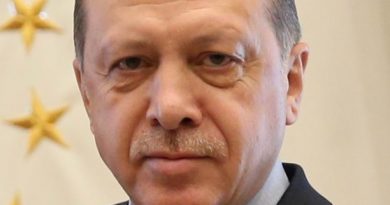India Wages War on “Fake News” and Loses
Shamel Dishack
Staff Writer
On April 2, the Ministry of Information and Broadcasting in Delhi announced that it would blacklist journalists accused of falsifying information, reports.
Initially, Ministry of Information and Broadcasting released vague guidelines that would allow the suspension of any official prints or broadcasts of ‘blacklisted journalists,’ reports the Guardian. These guidelines would permit the ministry to suspend a journalist or agency for six months in the first instance, a year for the second time, and a permanent ban the entity if found guilty of publishing fake news.
Fake news is understood as the process of knowingly false reporting in an effort to manipulate and influence sentiment or discredit opposition figures.
Following this announcement, the ministry faced a loud uproar from the international community, specifically from local journalists. During the uproar, journalists, Congress, and many prominent figures questioned the new rules, saying that the ministry is trying to muzzle press freedom and suppress news that the government deems malicious, reports the Times of India.
After widespread criticism and backlash, the Prime Minister’s Office directed a withdrawal of the announcement. This “war on fake news” occurred at a time of heightened media coverage by websites accused of untruthful media coverage.
On March 29, Bengaluru Central Crime Branch arrested Mahesh Vikram Hedge, head of news website Postcardnews. Known for dressing up extreme hyperbole as legitimate news, Hegde was arrested for claiming in a tweet that “Muslim Youth” had attacked a Jain Monk, reports NDTV. Bengaluru Police Commissioner Suneel Kumar, in an interview with The News Minute, confirmed that the monk actually suffered injuries from a bike accident, not from a hate crime.
Smitri Irani, the head of the Ministry of Information and Broadcasting, said on Twitter that the Press Council and the News Broadcasters Association would handle any accusations of fake news, reports the New York Times. However, the government controls neither body.
Regardless, Chief Editor of the Indian Express expressed concerns about the means of defining fake news. He cites that the government does not have the position to decide what is fake news, and claims that the announcement was an assault on the freedom of the press.
Censorship and soft power over media outlets have become a major theme in Indian politics, as tensions continue to mount between different castes and religious groups, reports the New York Times. Technology provides an unprecedented acceleration of news and communications, but can also become a tool of defacing facts. Anonymity makes fake news harder to trace and refute.
The government is also not without any accusations. Prime Minister Narendra Modi and the Bharatiya Janata Party often found themselves accused of accelerating false information and legitimizing hyperbole directed towards opposition leaders.

